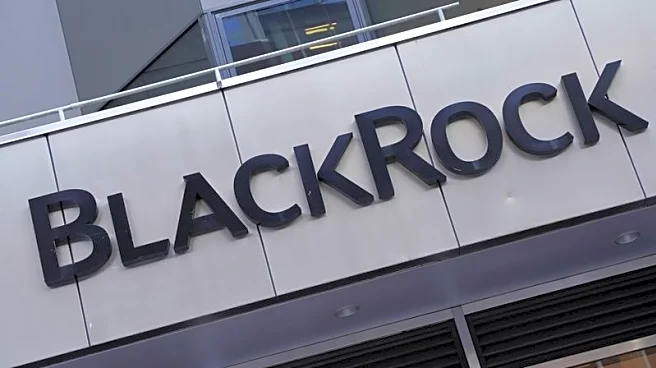What's Happening?
President Trump has successfully brokered a ceasefire deal between Israel and Hamas, marking a significant step towards peace in the Gaza region. The agreement, which was announced on Truth Social, involves a two-phase plan. The first phase includes the release of Israeli hostages held by Hamas, in exchange for the release of Palestinian prisoners by Israel. This development follows extensive negotiations involving key figures such as Jared Kushner and Steve Witkoff, who worked closely with Arab leaders and Israeli officials to refine the terms of the deal. The ceasefire is set to initiate a 72-hour countdown for the release of hostages, with aid flowing into Gaza as part of the agreement. The deal also includes an apology from Israeli Prime Minister Benjamin Netanyahu to Qatar for a previous airstrike, which was seen as a crucial step in building trust among the negotiating parties.
Why It's Important?
The ceasefire deal brokered by President Trump is a pivotal moment in Middle Eastern diplomacy, potentially easing tensions in a region long plagued by conflict. The release of hostages and prisoners could foster goodwill and pave the way for further negotiations on more complex issues, such as the decommissioning of arms and governance in Gaza. This agreement may also enhance the United States' role as a key mediator in international conflicts, showcasing its ability to facilitate dialogue and compromise. The deal's success could lead to increased stability in the region, benefiting both local populations and international stakeholders invested in Middle Eastern peace.
What's Next?
Following the initial phase of the ceasefire, the focus will shift to implementing the second phase, which aims for an 'almost permanent ceasefire' while addressing broader issues like arms decommissioning and governance in Gaza. The successful execution of these phases will require continued cooperation and trust among all parties involved. President Trump and his team are expected to remain actively engaged to ensure compliance and address any misunderstandings swiftly. The international community will be watching closely to see if this agreement can serve as a foundation for lasting peace in the region.
Beyond the Headlines
The deal highlights the complex dynamics of Middle Eastern politics, where historical grievances and geopolitical interests often complicate peace efforts. The involvement of multiple Arab leaders and the apology from Netanyahu to Qatar underscore the importance of diplomatic gestures in building trust. This development may also influence future U.S. foreign policy strategies, emphasizing direct engagement and strong alliances with key regional players.










